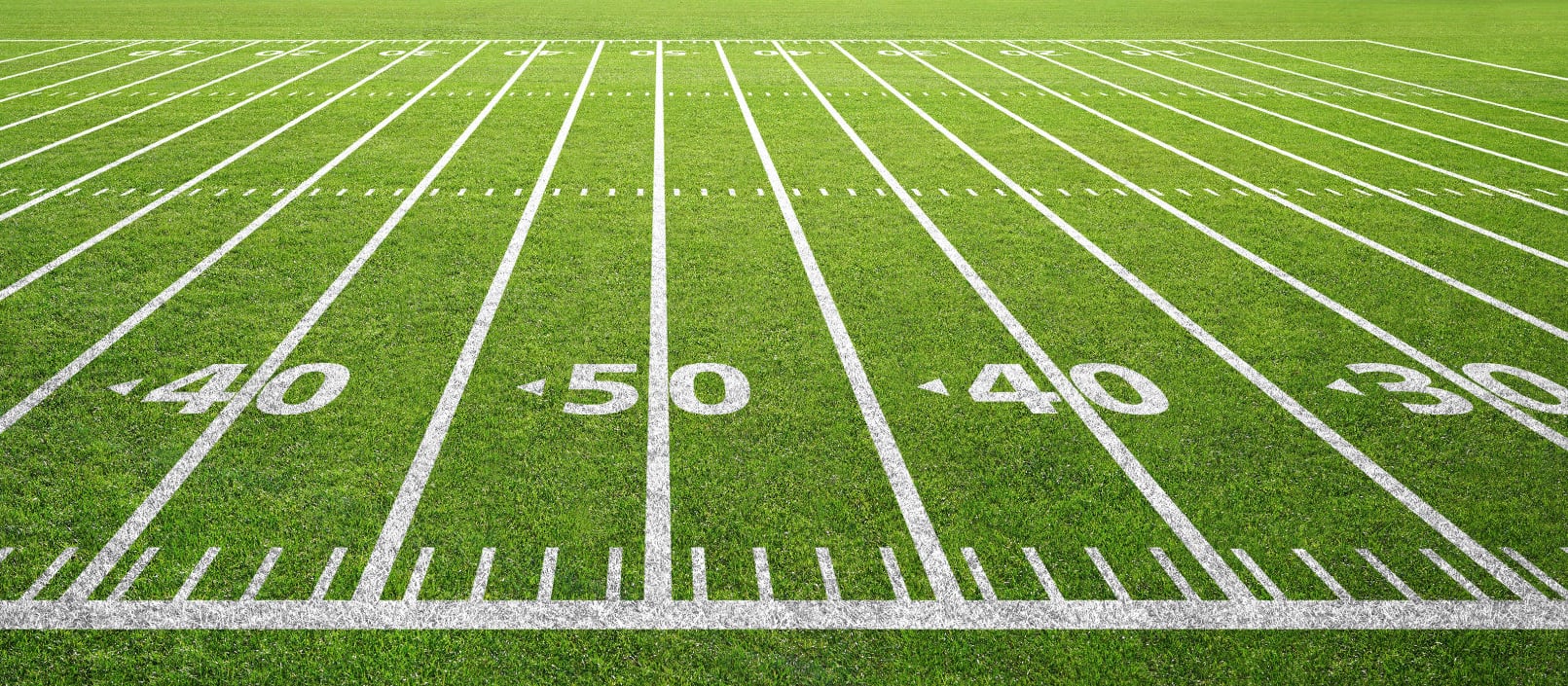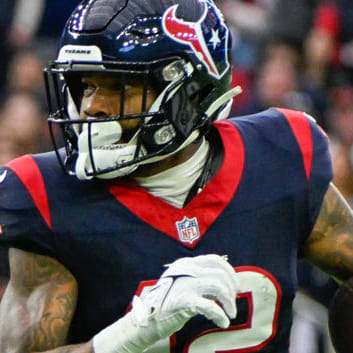This article is part of our Team Previews series.
BUFFALO BILLS
By Justin Mertes-Mistretta
STATE OF THE FRANCHISE
Not much went right for the Bills in 2010, as they finished with a record of 4-12. They led the league in a number of categories, but not in a good way. The Bills lost a league-high 18 fumbles, threw 21 interceptions and ended the year dead last in the NFL with a minus-17 turnover differential. Despite having a talented backfield made up of Fred Jackson, C.J. Spiller and Marshawn Lynch (until he was traded to Seattle), Buffalo finished last in touchdown runs (six) and touchdown runs per 100 attempts (1.5) due to a shaky offensive line. Along with their punchless ground attack, the Bills had a hard time stopping anyone, especially on the ground, finishing last in league in rushing yards allowed per game (169.6).
Despite being predominantly unimpressive on paper and regressing from six wins in 2009 to four wins in 2010, there is reason for tempered optimism for the Bills in 2011. Will they make the playoffs? Highly unlikely, but there is a good chance they will improve upon their 4-12 record. Per usual for below-average teams, the Bills had a hard time winning close games, but the fact that they were in those close games shouldn't be overlooked. Of their 12 losses, six of them came within single digits, four of which were decided by a field goal.
While the Bills did not address the offensive line as much as they probably should have in the
BUFFALO BILLS
By Justin Mertes-Mistretta
STATE OF THE FRANCHISE
Not much went right for the Bills in 2010, as they finished with a record of 4-12. They led the league in a number of categories, but not in a good way. The Bills lost a league-high 18 fumbles, threw 21 interceptions and ended the year dead last in the NFL with a minus-17 turnover differential. Despite having a talented backfield made up of Fred Jackson, C.J. Spiller and Marshawn Lynch (until he was traded to Seattle), Buffalo finished last in touchdown runs (six) and touchdown runs per 100 attempts (1.5) due to a shaky offensive line. Along with their punchless ground attack, the Bills had a hard time stopping anyone, especially on the ground, finishing last in league in rushing yards allowed per game (169.6).
Despite being predominantly unimpressive on paper and regressing from six wins in 2009 to four wins in 2010, there is reason for tempered optimism for the Bills in 2011. Will they make the playoffs? Highly unlikely, but there is a good chance they will improve upon their 4-12 record. Per usual for below-average teams, the Bills had a hard time winning close games, but the fact that they were in those close games shouldn't be overlooked. Of their 12 losses, six of them came within single digits, four of which were decided by a field goal.
While the Bills did not address the offensive line as much as they probably should have in the draft or free agency, they did address their need for run-stoppers. They were able to add the dynamic Marcell Dareus in the draft and sign Nick Barnett to replace Paul Poluszny at inside linebacker. The Bills also hired Dave Wannstedt as an assistant coach to help develop the hybrid 3-4/4-3 defense.
For the first time in recent memory, the Bills have young, promising talent at the skill positions and have a quarterback in Ryan Fitzpatrick capable of getting them the ball. The potential is even greater considering the offensive will be heading into its second year with Gailey, who has coached very productive offenses in the past and has been to four Super Bowls (three with the Broncos and one with the Steelers). Gailey is also the only Cowboys coach to make the playoffs in every season with the team.
Despite the long-term potential for the Bills, the short-term optimism has a fairly low ceiling when you consider that they have to play the Jets and Patriots twice each and have the pleasure of playing the NFC East this year. This amounts to the second toughest schedule in the league, which doesn't bode well for a team that is vying for their first playoff appearance since 1999.
OFFSEASON MOVES
2011 Draft
Round, Overall, Player
1. (3) Marcell Dareus, DT, Alabama
Versatile run-stopper should make an immediate impact in the 3-4 scheme.
2. (34) Aaron Williams, S, Texas
Despite missing OTAs, he is expected to start at nickel from the get-go.
3. (68) Kelvin Sheppard, LB, LSU
Could see playing time earlier than expected with the departure of Paul Posluszny.
4. (100) Da'Norris Searcy, S, North Carolina
Physical, in-the-box-type safety who will see most of his time on special teams in his first year.
4. (122) Chris Hairston, OT, Clemson
Surprising the Bills didn't address the offensive line earlier, but Hairston provides above-average run-blocking ability.
5. (133) Johnny White, RB, North Carolina
Has impressed so far in camp and could emerge as the goal-line back at some point this season.
6. (169) Chris White, LB, Mississippi State
Junior college transfer has decent quickness and could be a valuable special teams contributor.
7. (206) Justin Rogers, CB, Richmond
Special Teams Player of the Year in the Colonial Conference had a 30.4 avg and 2 TDs on kickoffs last year.
7. (245) Michael Jasper, OL, Bethel (TN) College
Athletic big man played offensive line in college, but will be a backup defensive tackle for the Bills.
Key Acquisitions
Brad Smith, WR (Jets)
He'll see the majority of his playing time in the wildcat as Chan Gailey wants to use him similarly to how he used Kordell Stewart in Pittsburgh.
Nick Barnett, LB (Packers
Replaces Paul Posluszny at inside linebacker and hopes to improve the league's worst run defense.
Tyler Thigpen, QB (Dolphins)
Ryan Fitzpatrick is the unquestioned starter at quarterback, but Thigpen provides a very capable backup.
Key Losses
Paul Posluszny, LB (Jaguars)
The Bills tried desperately to re-sign Posluszny, but ultimately he signed with the Jaguars to play in their 4-3 defense.
Donte Whitner, S (49ers)
His departure to San Francisco worsens the Bills' already abysmal run defense.
Akin Ayodele, LB (FA)
The unrestricted free agent had a surprisingly solid 106-tackle campaign last year.
DEPTH CHART
Quarterback
Ryan Fitzpatrick
Tyler Thigpen
Brad Smith
Levi Brown
Running Back
Fred Jackson
C.J. Spiller
Johnny White
Fullback
Corey McIntyre
Wide Receiver
Steve Johnson
Roscoe Parrish
Donald Jones
David Nelson
Buster Davis
Felton Huggins
Marcus Easley
Tight End
Scott Chandler
David Martin
Shawn Nelson
Kicker
Rian Lindell
Chris Hazley
Returners
C.J. Spiller
Roscoe Parrish
Leodis McKelvin
TEAM NOTES
NEED FOR IMPROVEMENT IN THE TRENCHES
It's no secret that the Bills offensive line is below-average, arguably one of the worst in the NFL, and with no notable additions in free agency or in the draft, this unit looks like it will be a weakness for the Bills once again. It's a shame because Buffalo boasts a nice one-two punch at running back with Fred Jackson and the electrifying C.J. Spiller. Though the latter is unproven, Chan Gailey will surely look for more ways to get him the ball this year. The Bills also drafted Johnny White, who could develop into a nice goal-line back. The nice thing about the two backs (Jackson and Spiller) in this system is that they can both catch the ball out of the backfield, which mitigates the fact that there won't be many touchdowns to be had in this offense, at least on the ground. Oddly enough, the offensive line was much improved in pass protection last season, giving up only 24 sacks when Ryan Fitzpatrick was starting. If the Bills can make the same improvement in their run blocking this year, they could be a sneaky good source for fantasy points this year.
SOMETHING IN THE AIR
The Bills have not been shy about adding depth to their receiving corps this offseason, signing former Jets' playmaker Brad Smith and Chargers' castoff Craig "Buster" Davis, who has a checkered injury history. Smith will be used more like Cleveland uses Joshua Cribbs, running the wildcat and contributing to the return game. Though Lee Evans is gone now, the Bills will also have a slew of returnees, including fourth-year breakout star Steve Johnson, sure-handed Roscoe Parrish, who is coming back from a season-ending wrist injury, and second-year receivers David Nelson and Donald Jones, who both showed potential during their rookie seasons. As a matter of fact, Nelson proved to be a decent red zone option, scoring a touchdown in three straight games from Weeks 13-15. Either way, Fitzpatrick has a talented, although youthful, bunch of receivers to work with in 2011.
CAN FITZPATRICK BUILD ON 2010 EFFORT?
Speaking of Fitzpatrick, he was not too shabby in 2010. After taking over for Trent Edwards, he posted a 2:1 touchdown-to-interception ratio from Weeks 3 through 11, passing the 300-yard mark twice and throwing for multiple touchdowns five times during that span. He slowed down in the second half of the season, throwing only five touchdowns in his final six games. However, he still finished the year with 23 touchdown passes, which was the most by a Bills quarterback since Drew Bledsoe threw for 24 in 2002. While Fitzpatrick will never be mistaken for having a cannon arm, he gets the ball out quick and is an underrated scrambler (269 rushing yards in 2010). He gets another year in Gailey's system and has a nice connection with Steve Johnson. Plus, the Bills have a few potential shootouts against the Patriots (twice), Eagles, Cowboys and Chargers. With a defense that couldn't stop anyone last year, the Bills will be forced to pass early and often once again this year, so it isn't at all unrealistic to think Fitzpatrick could improve on his 2010 numbers.
VALUE METER
Rising: Touchdowns will be hard to come by, but Fred Jackson should get the majority of the carries with Marshawn Lynch gone.
Declining:Steve Johnson saw more attention from defenses in the second half of last year, scoring just one touchdown in his final six games.
Sleeper: Gailey will find multiple ways to get the ball to C.J. Spiller in space this year.
Supersleeper: In the last three games prior to his season-ending injury in 2010, Roscoe Parrish averaged over six catches. He is worth a flier in leagues that reward points for receptions.
IDP WATCH
Jairus Byrd, S
Followed up his nine-interception rookie campaign with just one interception in 2010, but nearly doubled his total tackles (89).
Marcell Dareus, DT
Should be a good source for tackles as he will be asked to come in right away and improve the porous run defense.
Drayton Florence, CB
Scored two defensive touchdowns and led a pass defense that finished third in the league in passing yards allowed per game (192) last season.
Team Defense
RotoWire Rank: 29









